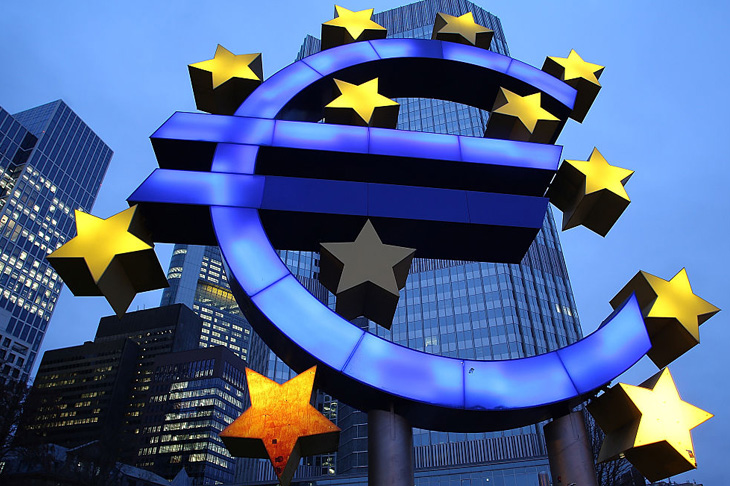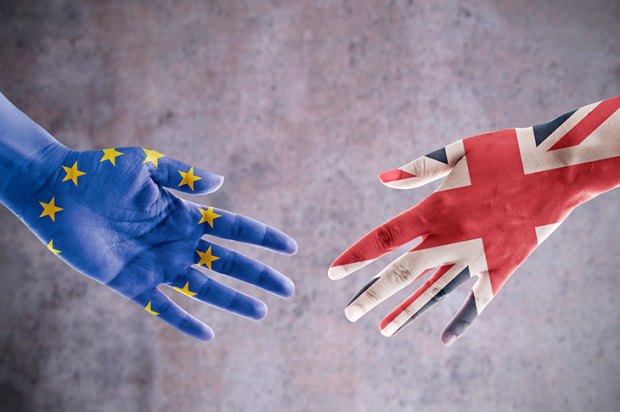Is it better to negotiate with a confident, optimistic European Union or a nervous, fretful one? Even Brexiteers are split on this question. Some take the view that the European Union’s difficulty is Britain’s opportunity and that bad news for Brussels is good news for Brexit. But most, and especially those in government, tend to think that a more confident EU will be less scared of other countries following Britain’s lead, and so more inclined to do a decent deal.
In the immediate aftermath of the referendum, there were worries in Brussels that Brexit was just the start. Senior European political figures feared that 2017 could see the populist Geert Wilders top the poll in Holland and Marine Le Pen break the 40 per cent barrier in France. In the end, these fears turned out to be misplaced. Wilders came a poor second and Le Pen didn’t even break 35 per cent. She was defeated in the second round by an explicitly pro-EU candidate who arrived at his victory rally to the ‘Ode to Joy’.
Even so, the defeat of Wilders and Le Pen — and the receding possibility of any other state following Britain out of the EU — didn’t lead to a notable shift in the Commission’s approach to Brexit.
The EU’s current attitude to Brexit goes beyond a reasonable and legitimate desire to protect the integrity of the single market. The Commission seems determined to make it as difficult as possible for the UK to continue playing the disproportionate role it does in the defence of Europe. Its attitude regarding the Galileo satellite navigation system, for example, is a remarkably mean–spirited response to the UK’s guarantees that its commitment to the defence of Europe is unconditional.
Given that Britain is one of the only four current EU members to meet the Nato 2 per cent target for defence spending (the other three are Greece, Estonia and Poland), the Commission is being remarkably shortsighted. Does it really want domestic pressure in Britain for this country to pull back from its military commitments in Europe? After Brexit, 80 per cent of Nato spending will come from outside of the EU, so this doesn’t seem particularly sensible.
The negotiations also seem to be being conducted in a distinctly undiplomatic way. There is pushing for more clarity from the British side, and there is simply being rude. Michel Barnier’s team seem too willing to risk landing on the wrong side of this line.
But would things be better if the European Union was in trouble? Events in Italy raise the question of whether, if the EU does go on to have an existential crisis, the Brexit talks will make better progress. Wishing ill on your neighbours is rarely an attractive thing to do. But there are reasons to think that a eurozone crisis could help Britain achieve a better deal.
Firstly, it would increase the EU’s interest in an orderly Brexit that minimised economic disruption. After all, if a eurozone crisis was raging — and the threat of a trade war with the US was lurking in the background — it would be more difficult for the European economy to absorb any shock from Brexit. In these circumstances, the more pragmatic member states would almost certainly start to assert themselves.
Secondly, a eurozone crisis would make the UK’s divorce payment all the more important. In crude terms, it would increase the tensions between northern and southern Europe over money: just look at how Germany’s EU Commissioner has declared that the markets will send Italian voters the message that they can’t vote for populists; or how the German papers have heaped abuse on Italy in the past few days.
In these circumstances, going back to northern European voters and telling them that they will need to cough up because of Britain’s absence would be hugely problematic. It is hard to imagine, for instance, any Dutch prime minister wanting to do that. Equally, it is hard to imagine a worse time to tell southern Europeans that the EU will be spending less on the projects that are supposed to benefit them. Indeed, the decision of the European Council to invite British officials to attend the budget talks covering the period after Brexit — which has reportedly infuriated the Commission — shows that the member states are, at the very least, keen to hear about any ‘pay to play’ offers that the government is prepared to make.
Thirdly, and perhaps most importantly, a eurozone crisis could lead to the EU taking a more pragmatic approach to the City of London. London is, ironically, the de facto banking and financial capital of the eurozone. To unplug from that in the middle of a crisis would be brave indeed.
In a eurozone crisis, the importance of the City of London’s capital markets — the deepest, by far, in Europe — would increase. Losing direct access to them would hinder the eurozone economy at a time when it could least afford it.
It is often said that in the Brexit negotiations, politics have trumped economics. That is true. Brexit is, after all, primarily a political decision, as is the EU’s response to it. But the euro is principally a political project. It is hardly an optimum currency area, and is meant to pave the way for greater integration. So anything that harms the euro is a threat to the European project, which is why a eurozone crisis might lead to a more pragmatic approach from the EU in the Brexit talks.
As has to be said infuriatingly often, however, the government’s failure to prepare with sufficient rigour and vigour for ‘no deal’ has again weakened its hand. The EU side knows that the government isn’t prepared to walk away. So it won’t be as worried as it otherwise would be about, for instance, losing the divorce payment if it pushes Theresa May too far.
In Britain, we tend to underestimate the sheer determination of the European political class to keep the project going. But what cannot be obscured is the eurozone’s structural flaws. The Italian crisis promises to shine a spotlight on them, in a far more significant way than the Greek one did. For while Greece may have been small enough to save or fail, Italy is neither of those things.
Got something to add? Join the discussion and comment below.
Get 10 issues for just $10
Subscribe to The Spectator Australia today for the next 10 magazine issues, plus full online access, for just $10.
You might disagree with half of it, but you’ll enjoy reading all of it. Try your first month for free, then just $2 a week for the remainder of your first year.














Comments
Don't miss out
Join the conversation with other Spectator Australia readers. Subscribe to leave a comment.
SUBSCRIBEAlready a subscriber? Log in